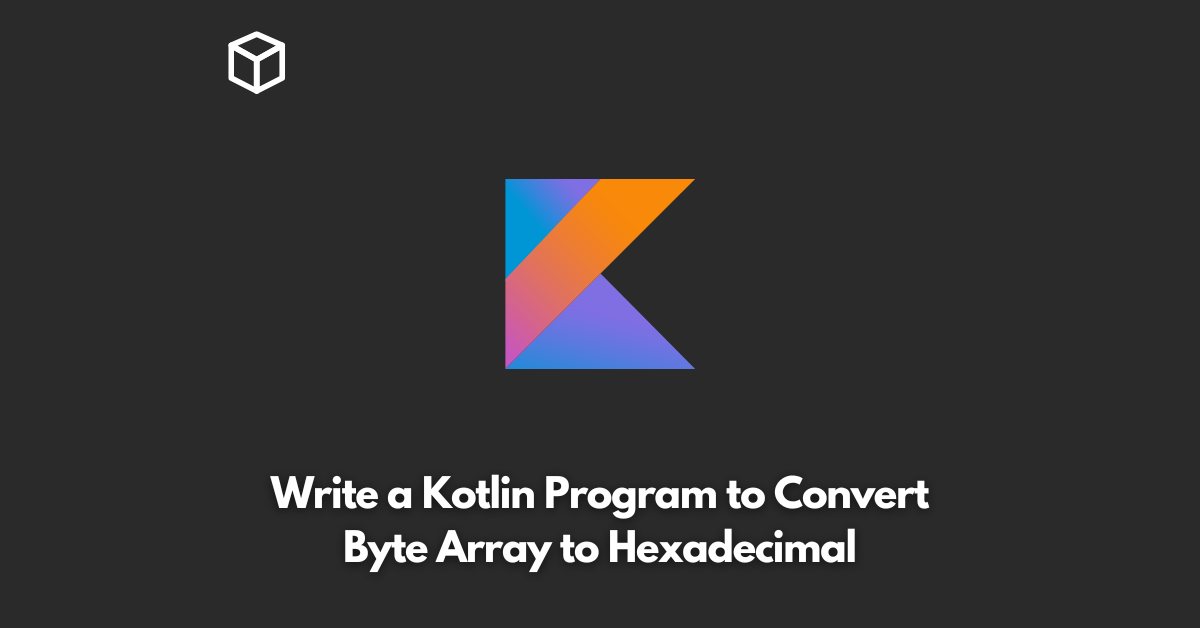In Kotlin, it is very easy to convert a byte array to hexadecimal representation.
In this tutorial, we will discuss how to convert a byte array to hexadecimal using the built-in functions in Kotlin.
First, let’s define a byte array that we will use for the conversion:
val byteArray = byteArrayOf(10, 20, 30, 40, 50, 60, 70, 80, 90, 100)
Now, to convert this byte array to a hexadecimal representation, we can use the joinToString function in Kotlin, along with a separator and a transform function.
Here’s the Kotlin code to convert a byte array to hexadecimal:
val hexString = byteArray.joinToString(separator = "") { byte -> "%02x".format(byte) }
println(hexString) // output: "0a141e28323c465a64"Let’s break down this code:
- We use the joinToString function to convert the byte array to a string, with an empty separator.
- The transform function { byte -> “%02x”.format(byte) } is used to transform each byte into a two-digit hexadecimal representation. The %02x format specifier ensures that each hex representation is two digits long, with leading zeros added if necessary.
- The resulting hex string is printed to the console.
And that’s it! This is a very simple and concise way to convert a byte array to hexadecimal representation in Kotlin.
It’s worth noting that there are other ways to perform this conversion, such as using a StringBuilder to append each hex representation.
However, the joinToString function is a convenient way to achieve the same result in a more concise and readable way.




